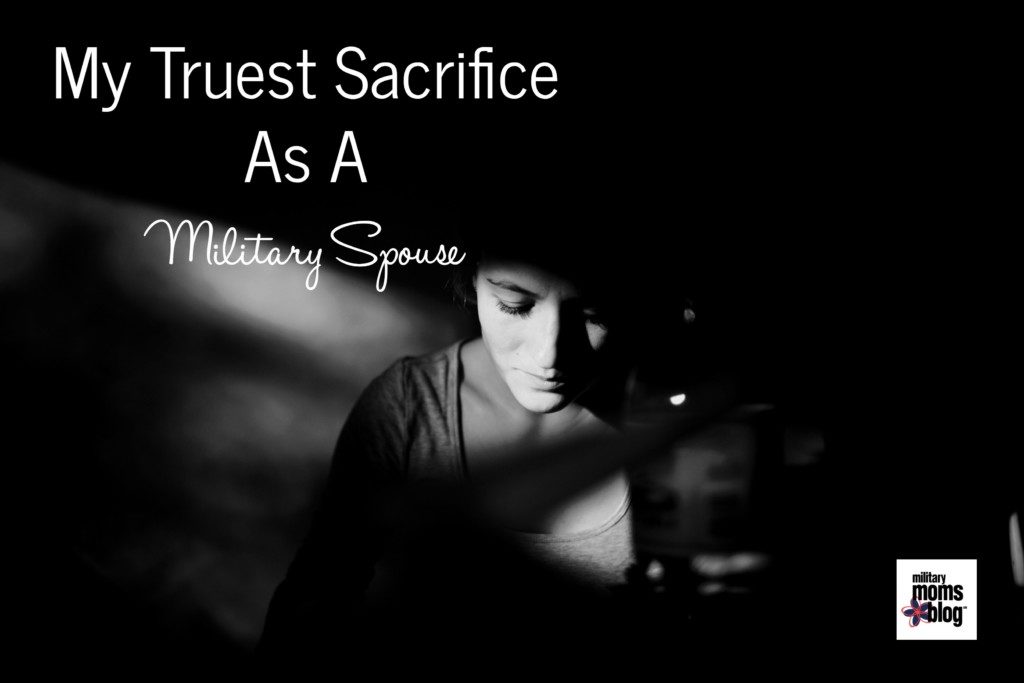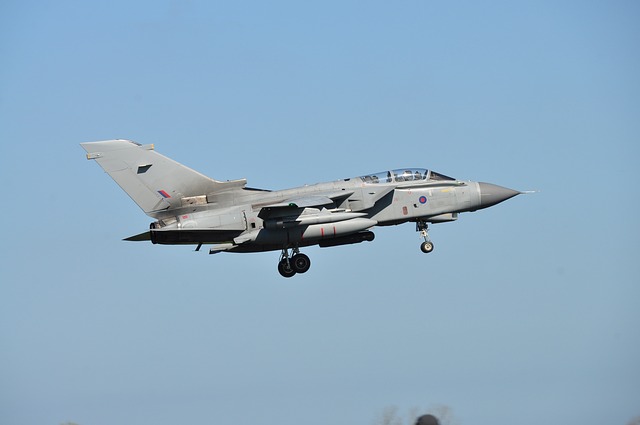
It always starts the same way.
The phone calls and text messages.
There has been an accident.
A jet crash at our base.
The last time it happened, I knew my husband was not scheduled to fly, so I knew he was safe. Even still, I went to where he keeps the boots he wears when flying just to make sure. I sat in our hallway with those smelly boots and the same sick feeling crept in: the thankfulness in knowing my loved one was safe, but no relief — not when someone else is having the worst day of his or her life.
I waited to find out if the pilot was OK, and when I found out he was not, I waited to hear who he was. Our community is small and our lives are interwoven. I knew there was a great likelihood that I would know him—and I did—but even if I hadn’t, it would have still hit close to home. Even if I don’t know the person, I do. Our lives are similar, and we share friends. The loss of one is a loss to our whole community. It’s easy for me to put myself in the shoes of their families because I am their family.
This is my real sacrifice to the military—the fear.
This fear lives deep in my heart. It isn’t always on the surface, but it is always there.
Even through prayer and faith, I still find the fear creeping in. Sometimes it sneaks in quietly like when life is going well. I find myself wondering when the other shoe will drop. Surely I don’t deserve to be so happy. Other times, it blindsides me on a Wednesday morning like it did last week.
When I married into the military, I expected the other sacrifices. The missed birthdays and anniversaries. The career killed by move after move. Of course, these are hard, but they are not permanent.
I was prepared for deployments and the fears that accompany them. However, due to the nature of my husband’s job as a pilot, there is an inherent risk every time he flies. His job is dangerous, and the margin for error is small. Every day he goes out to fly is a day he might not come home. Most days I can compartmentalize this—I can send him into work and trust that he will be fine. I have to be able to do this, or I wouldn’t be able to function. This is true of any spouse who has to knowingly send his or her loved one into harm’s way.
The first time it happened was when a T-38 crashed when my husband was in pilot training.
I was substitute teaching and did not find out until I checked my phone during my conference period. I saw all the missed calls and messages from family and friends who had seen it on the news. This was before smartphones and social media were omnipresent, so I was only able to get limited information by getting on the computer and looking at the local news. There was not much information other than reports that the crash happened around the time my husband was supposed to be flying.
I tried calling my husband and there was no answer. At this point, I was still new to the military and didn’t know the protocol. I didn’t realize my husband was essentially on a lockdown at the squadron until identification and notifications could be made. He couldn’t call me. I started to panic. What if it was him? Would there be people waiting in my driveway when I got home?
As I drove home, I began to mentally prepare myself to turn down our street. I felt a huge release when I got to our house and no one was there. It was a long, anxious afternoon until my husband called, and I could allow myself to fully believe he was OK. However, two pilots were not.
For the first time, it dawned on me how dangerous his job was and not just in the abstract. Life and death were measured in inches and seconds. For the first time, the fear crept in and made its home in the deepest part of my heart. Perhaps, I think, it has never really left.

The second time it happened was when we were stationed in Italy. I woke to texts, missed calls, and messages from our family and friends in the United States asking if my husband was all right. There was an F-16 accident during a night flying mission. Due to the time difference, they were seeing it on the news before many of us were even awake. My husband was home with me, so I knew it wasn’t him, but it wasn’t long before we found out it was one of our dear friends.
The next few days were an endless blur of waiting and hoping only to find out the terrible news that our friend had not survived the crash. I’ve always rationalized the risk my husband takes on the job by telling people that statistically driving to work is more dangerous than what he does.
I learned in that moment what statistics mean when you are on the other side of them.
Statistics mean nothing when you are sitting with a friend while she finds out her husband is never coming home and that he will never meet their unborn child.
Statistics mean nothing when you have to send your husband out a week later to fly at night while you lay awake waiting and worrying until he comes home.
The one positive to the fear is that it forces me to live in the moment. When I know it can all come crashing down, literally, I have no choice but to treasure the good.
A very tiny percentage of Americans serve in the military. For most, they see our lives as deployments and homecomings and thank us for our service often with a note of sympathy.
The military spouses I know don’t want sympathy. On the contrary, we are proud of life and the service of our family. What we do want is understanding; understanding that we must knowingly send our loved one out time and again into harm’s way; and nderstanding that our truest sacrifice isn’t the deployments, absences, or annoyances of military life.












Beautifully written. <3
Jamie, this is a beautiful piece. Your emotions jumped off the page right into my heart. Keep worrying. When my son had his tragic incident, I felt he was safe and didn’t do my usual fretting. I will never do that again. Unfortunately, I now get to worry 100% of the time. Thank you for your sacrifices.
Comments are closed.